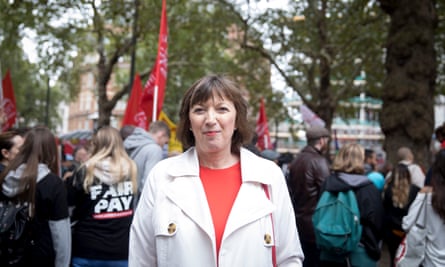The bosses of the UK’s biggest companies are facing renewed scrutiny over excessive pay deals, after new figures showed top executives earned the average worker’s annual salary within the first three working days of 2019.
Dubbed “Fat Cat Friday”, 4 January is the date by which the average CEO of a FTSE 100 company pockets the equivalent take-home pay of a typical full-time worker in the UK.
Calculations by the High Pay Centre thinktank and the professional HR body the Chartered Institute of Personnel and Development (CIPD) show top executives are earning 133 times more than the average worker, at a rate of around £1,020 per hour or £3.9m annually. That’s up 11% compared to a year earlier.
It means CEOs working average 12-hour days would only have to clock in for 29 hours in 2019 to earn the median £29,574 of British staff.
The figures have prompted criticism from both unions and shareholder groups.
The GMB’s general secretary, Tim Roache, said: “It’s sickening. Three days into the year and fat cat bosses have already made what average workers will earn all year.
“It’s not fair, and it makes no sense in how we value people’s contribution to society and it makes no sense for the economy – I don’t know any care workers who squirrel their wages away in offshore accounts, they spend it in their local areas and on paying their bills.”
Frances O’Grady, the general secretary of the Trades Union Congress, also slammed “greedy executives” she said were “taking more than they’ve earned”.
“Too much wealth is being hoarded at the top,” she said, adding that reforms were needed to bring executive pay “back down to earth”.
Shareholders have also taken aim at overpaid executives, with 63 companies including Royal Mail, Persimmon and Unilever facing investor rebellions over pay last year.
“This is a result of shareholders feeling they are not being listened to,” said Andrew Ninian, the Investment Association’s director of stewardship and corporate governance.
“Companies need to do more to respond to shareholder concerns and ensure pay rewards align with company performance and remain at levels that are justifiable to shareholders.”

A £75m bonus pocketed by the boss of Persimmon, Jeff Fairburn, eventually resulted in his ousting in November following an earlier investor backlash.
Last summer Royal Mail suffered one of the biggest shareholder revolts in UK corporate history when around 70% voted against its pay package for its CEO, Rico Back, worth up to £2.7m. This was on top of a £6m “golden hello” for him having left the company’s European subsidiary.
The CIPD and the High Pay Centre are calling for a major overhaul of how executive pay is set in the UK.
The two bodies say corporate remuneration committees, which decide executive pay levels within each company, should be more diverse in terms of gender, ethnicity and professional background in order to combat group-think.
They are also calling for long-term incentive plans, which tend to dole out performance-based bonuses every three years, to be replaced with a less complex system based on a basic salary and a small restricted share award.
Executive performance should also be based on benchmarks including employee wellbeing and workforce training, which the High Pay Centre and CIPD say are “crucial for good corporate governance”.
CIPD’s chief executive, Peter Cheese, said: “Excessive pay packages awarded by remuneration committees represent a significant failure in corporate governance and perpetuate the idea of a ‘superstar’ business leader when business is a collective endeavour and reward should be shared more fairly.
“This imbalance does nothing to help heal the many social and economic divides facing the country.”
